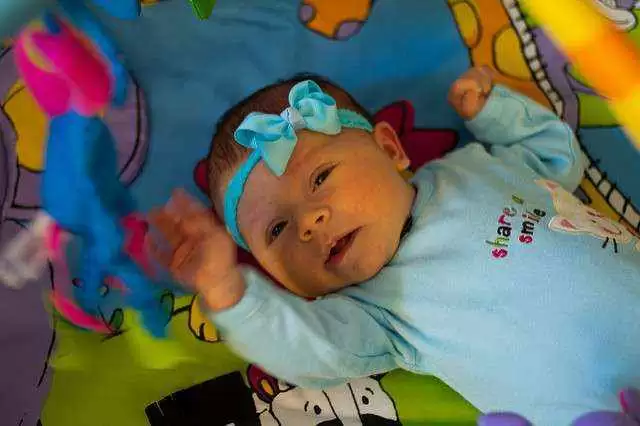
Celiac.com 01/16/2021 - Oh dear! This week I met three parents in my clinic who are quite annoyed. Perhaps infuriated is more accurate. All three families have a child who has been unwell for years. All three children had blood tests done over the last two years by another pediatrician—these tests showed high levels of gluten antibodies (a high IgG-gliadin level) which was ignored.
Anna is nine years old. She is now gluten-free and is better: she sleeps all night, has no tummy pains, has more energy and she is enjoying life again. She is strictly gluten-free. Even small amounts of gluten upset her tummy. She says "I feel good!"
Celiac.com Sponsor (A12):
Previously, she had tummy pains since two years of age. However, over the last few months everything got worse with very bad tummy pains and more diarrhea. Two years ago she had a blood test which showed high gluten antibodies—IgG gliadin 72 (usually less than 20 units). But this result was ignored by her pediatrician.
When I saw Anna I repeated her blood tests: she had persistently high gluten antibodies (IgG gliadin 60) but no evidence of celiac disease (a normal tTG).
Her parents, with a sense of irritation said: "Obviously, her diagnosis under the nose of our previous doctor, so why did he miss it? Why didn't he suggest going on a gluten-free diet at that stage? It would have stopped Anna having another two years of suffering! How frustrating! Why don't more doctors know about this diagnosis?"
Emma
I unscrambled Emma's illness recently. She is eight years old. Emma's mum sent me this thank you card:
"Dear Dr Ford, We just want to say a BIG THANK YOU for all you have done for us! Emma has been pain free from her gluten free diet! All of us are now gluten-free and we feel more energized and happier in our tummies! Your information has also helped some of my friends! Keep going and informing people about this important information. Thank you so, so much.
PS: Hopefully we won't have to see you again!"
Emma had been seen by another pediatrician two years ago who did blood tests showing very high IgG-gliadin antibodies at 91 units (should be less than 20) a normal tTG, and the genes associated with celiac disease (DQ2/DQ8) were not detected.
My repeat tests showed that her gluten antibodies were still very high (IgG-gliadin 86). She showed a dramatic response to the gluten-free diet. Her tummy pains and lethargy melted away. She is now a happy, vibrant eight-year-old, and with grateful parents.
Dan
Perhaps Dan's story is the saddest. He is now 12 years old. He has had constipation and leaky poos for more than five years. He smells. He is embarrassed that he has accidents in his pants. School is difficult. His parents are exasperated that Dan seems to have no control of his bowels. Dan is depressed and anxious about his terrible situation.
Yet again he was assessed by another pediatrician a few years ago. His gluten antibodies were sky high (IgG-gliadin of 94) but ignored because he had no evidence of celiac disease. Dan had to go through a lot of "behavior modification" therapy, but with no benefit—it only made him more anxious and withdrawn.
Yes, you guessed it. His repeat blood tests confirmed a gluten problem. And yes, within a few weeks of going gluten-free he is now in control of his bowels—at long last. He can now give me a smile. He has the gluten syndrome and has suffered years of unnecessary pain and embarrassment. His parents had labeled him as lazy, naughty and manipulative. He was being lined up for some more psychotherapy. Oh Dear!
Please help these children!
I often feel moments of sadness and frustration in my clinic. I hear similar stories every day. I see parents crying with relief that the answer has, at last, been found. I also see families who are angry. A gluten-free remedy is so simple and benign, yet it has not been suggested despite elevated IgG gliadin antibodies.
This complacently and blindness causes unnecessary suffering. Many of my medical colleagues continue to ignore gluten sensitivity. They are in denial. They attribute the response to a gluten-free diet to a placebo effect. They undermine their patients through telling them to go back to eating gluten because they do not have celiac disease.
The way forward is for the gluten-free community to keep spreading the word: that gluten can cause a great deal of harm to many people and it needs to be considered as a front line diagnosis. The good news is that this year some researchers in the big Celiac Foundations and Celiac Research Institutes in the USA are starting to research gluten-sensitivity. At last Gluten Syndrome is being taken seriously. We need to help all of the Annas, Emmas and Dans of this world.
If you have any comments or questions I would love to hear from you through our









Recommended Comments
Create an account or sign in to comment
You need to be a member in order to leave a comment
Create an account
Sign up for a new account in our community. It's easy!
Register a new accountSign in
Already have an account? Sign in here.
Sign In Now